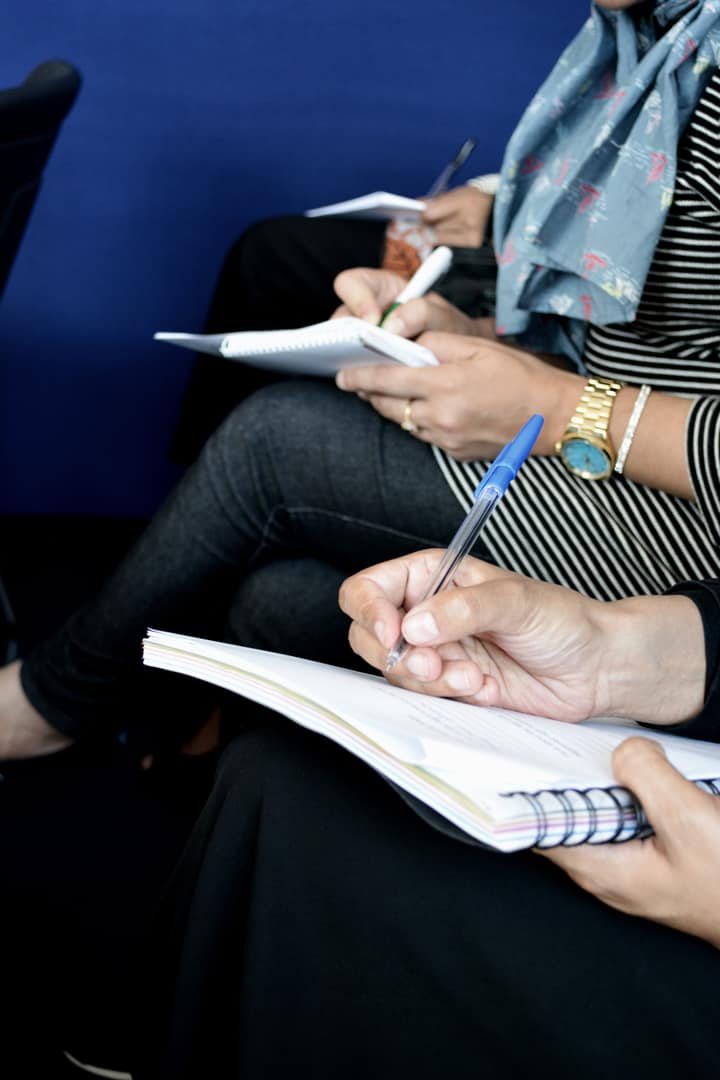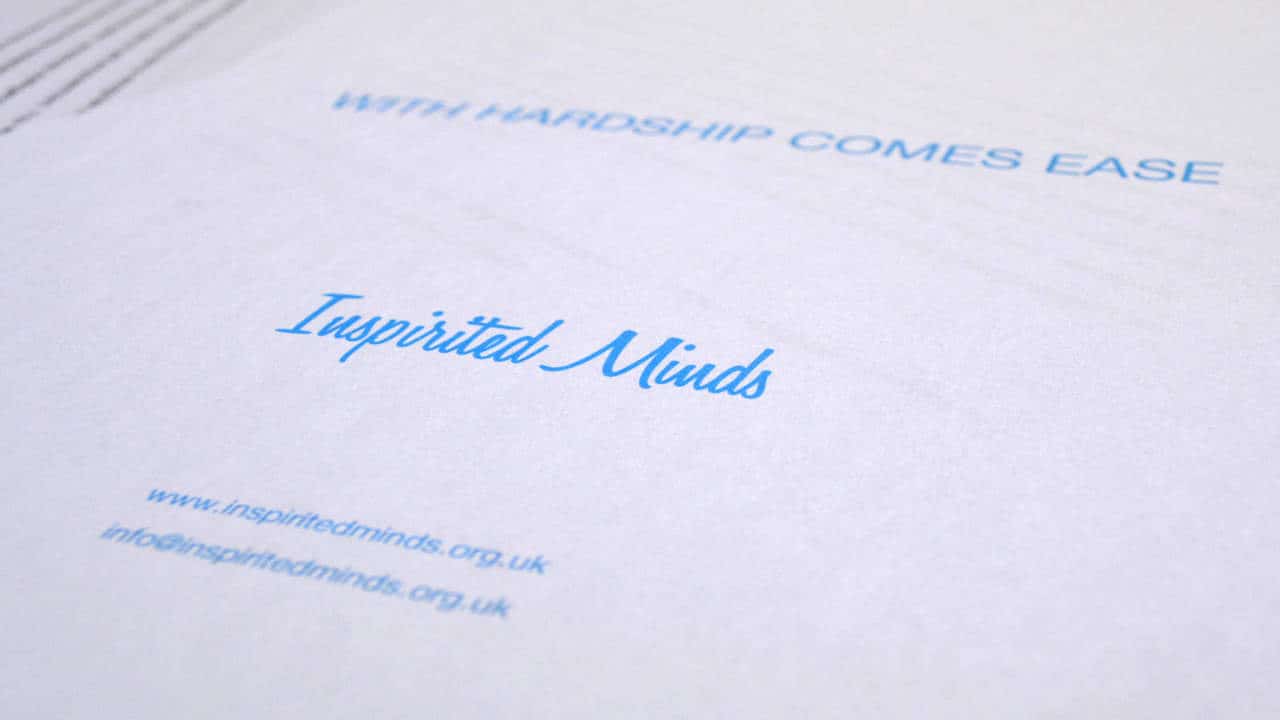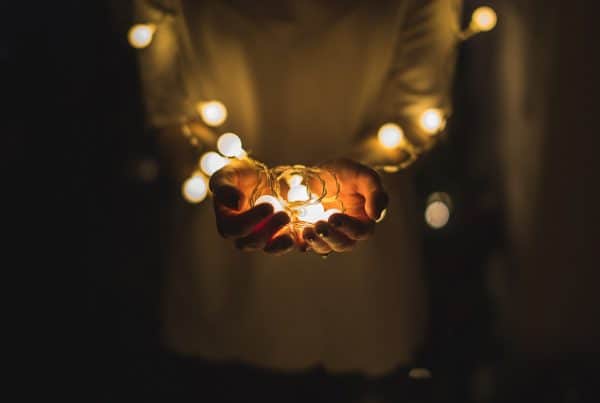Inspirited Minds strikes again with another fab event that left some speechless, intrigued, and motivated to know more about themselves, addictions that we may be oblivious to, the realm of the unseen, and dealing with anxiety and depression – this time, in the form of an epic 2 day workshop.
Day 1
What better way to start the day than introducing yourself, to yourself, with Ramiz Ibrahim. It lead to many individuals taking a leap onto their journey of self-discovery. Everyone thinks they know themselves, but the attendees soon realised that they were their own strangers. Brother Ramiz had us think about our boundaries and limits that stop us from becoming the better us that we want to become, because we all want to improve and ultimately secure our places up top. However, as we all struggle with the daily battle against our nafs and other elements, we must know how to get over these hurdles – and that’s exactly what we were exploring. Underlying our daily hurdles is our resistance to change.
Why is there a resistance to change? Our ego. This is why we were taught to humble ourselves, remember our purpose and question if we were fulfilling that, remind ourselves that there is no harm in learning from our mistakes for betterment in the future, and be open to adaption and adjustment which are fundamental for progression and moving forward. In order to get to location B, we need to know where we are at with A and what path we need to take. We need to find ourselves, our true selves, who we really are, we need to understand and co-operate with our own mind, our emotions, our thoughts and how we change in situations in order for real and permanent change to be implemented.
“Most people dream about their lives, but do not live it. Stop dreaming, it’s time to live your life.”
Ramiz Ibrahim
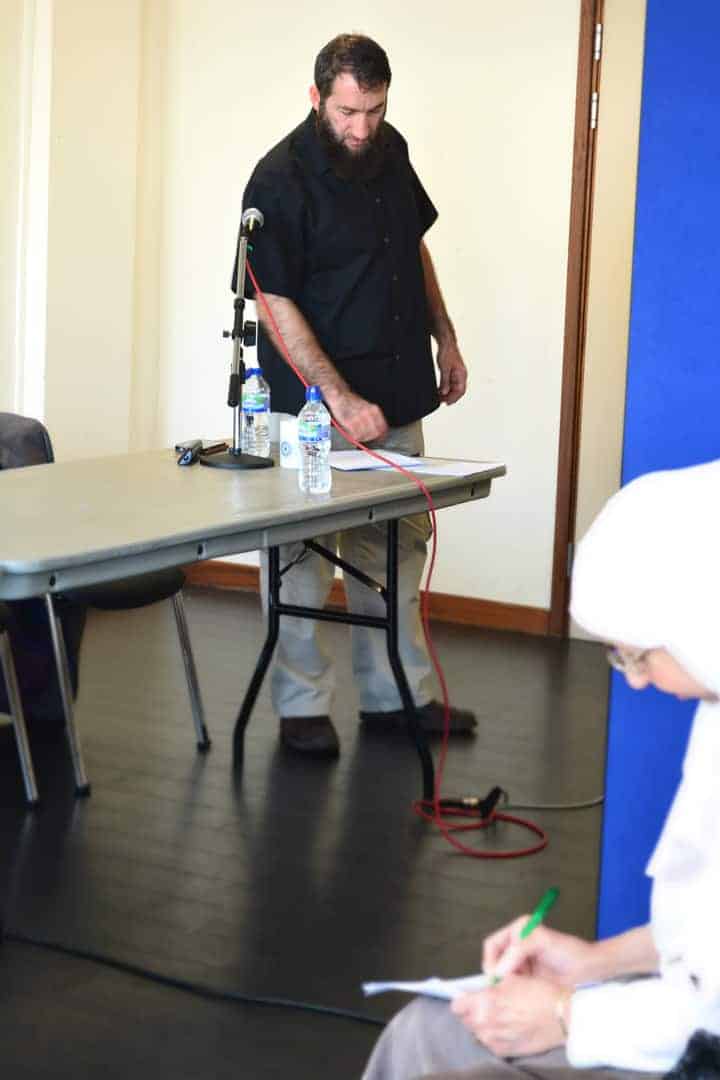
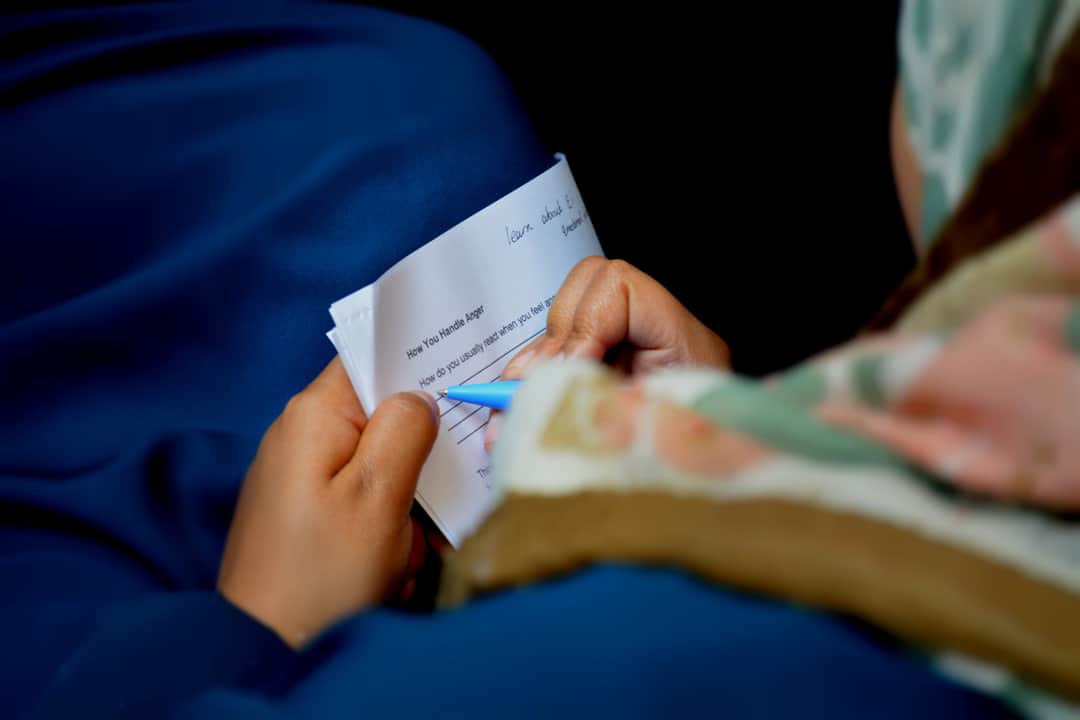
Have you ever wondered how awful it must be to want to change, but not know how to? Sister Nazish Hussain talked us through the processes, the consequences and the ‘background info’ to addictions that we all seem to ignore. It is our duty as Muslims to be empathic and non-judgemental, because we’re all struggling with something, whether it is with picking up the Quran once a day, drinking far too much green tea, swearing, smoking, gambling, drugs or even social media, we’re all struggling. Sister Nazish highlighted that we have to be the good company that people need, “with our scarves and beards, we cannot judge. We have to acknowledge responsibility”, and have to imagine how we would react, respond and treat the person who has come to us for help or needs help, if they were a loved one?
Sister Nazish effortlessly put it all into perspective and made us realise that there is a lot more to addictions than what we think, the roots, the cause, the strong feeling of need, the need for control, and so on, it’s a vicious cycle that would break down even the most strongest of people. Many would focus on their sinning (if we’re talking about gambling and substance use addictions), but we were asked to knock down the barrier we instantly put up, causing an “us” and “them” partition because it is against Islam. We fail to realise that something must have been missing in order to prevent their connection with Islam, something must have affected their spirituality that caused them to fill it with something else. We cannot go in guns blazing when trying to help, or be too hard for trying to deal with struggles, be sensitive to the chaos going on in someone’s life – as their struggle does not define their existence.
“They are not an addict; they are person with an addiction. We have to hate the problem, and not the person.”
Nazish Hussain
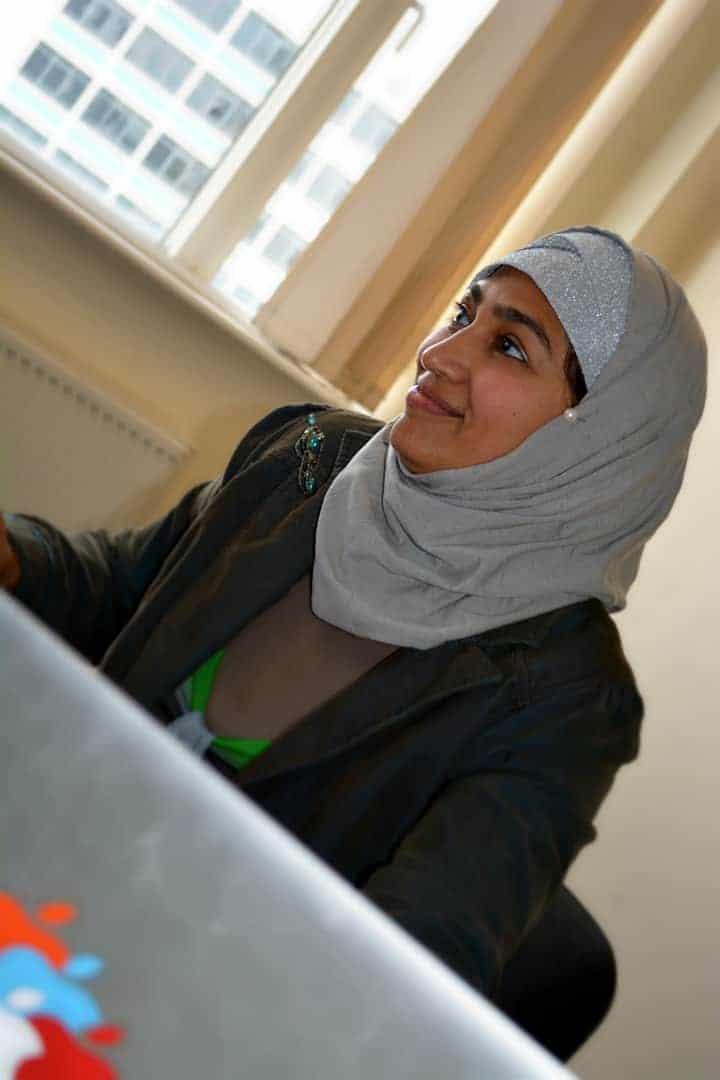
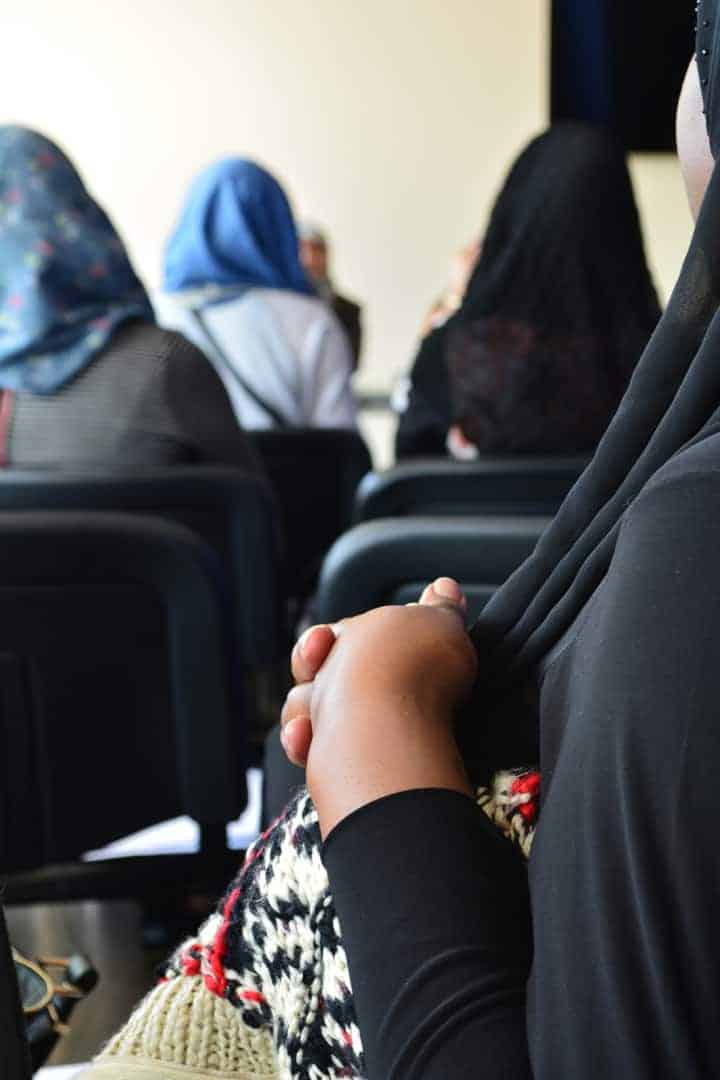
Day 2
The second day started bright and early with jinns, black magic, and mental illness… Okay, it’s not as heavy as it sounds. Brother Abu Taher cleared a path for us to begin delving into the unseen influences by firstly highlighting how complex the relationship is between jinns, black magic, symptoms and the effect it has on our mental health. I believe most attendees went into the workshop believing that they would be able to put jinn possessions and mental illness into 2 different boxes, but we realised that the unseen world, parallel to us, is in fact more intertwined than what we thought. Brother Abu Taher had us examine case studies where certain people had illnesses and we had to conclude whether or not it was a jinn possession/black magic or whether they could be clear cut diagnosed with a mental health disorder – but it wasn’t as easy as that, and most of the times we found ourselves with a combined answer, demonstrating how mixed it is. Many misconceptions were cleared up from goat feet, to wolves’ kryptonite, but most importantly a clear distinction was made between black magic and jinn possession. These are commonly mixed up, which can often lead to misdiagnosis and further trauma.
Black magic are the symptoms of jinn possession let’s say, and jinn possession is when the mind and body has actually been taken over by an external force. Therefore, if someone is doing something out of character or they are acting unusual, or they have been feeling in some way for a period of time – we can’t jump to the conclusion that they are possessed, nor can we say that they must have had black magic done on them, as the symptoms can be very similar to other mental health disorders such as mania, hallucinations, hysteria, depression, erratic thinking etc. It was brought to our attention what Jinn’s actually are, where they live and how there are good and bad jinns just like us, who will also be held accountable and how black magic comes about – just think typical scary movies. (Who knew they would take such inspiration?) We were given duas to take home which can aid in protecting ourselves from such situations, as dua is the weapon of the believer. Although symptoms may appear to be intertwined, and that could be a reason of why mental illness is so easily blamed on unseen influences, we have to remember that mental health and jinns/black magic are acknowledged as independent in Islam, as it should be in today’s community.
“Verily we created man from a wet product of earth” [23:12]
“& He created Jinns from smokeless fire” [55:15]
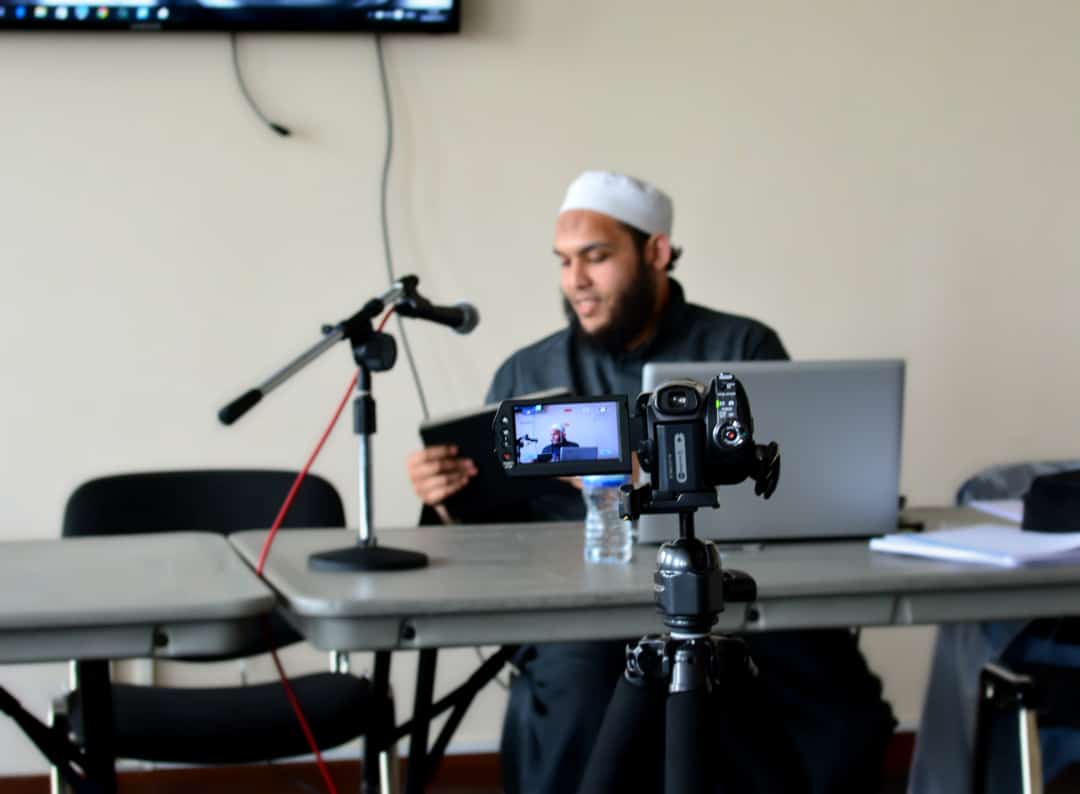
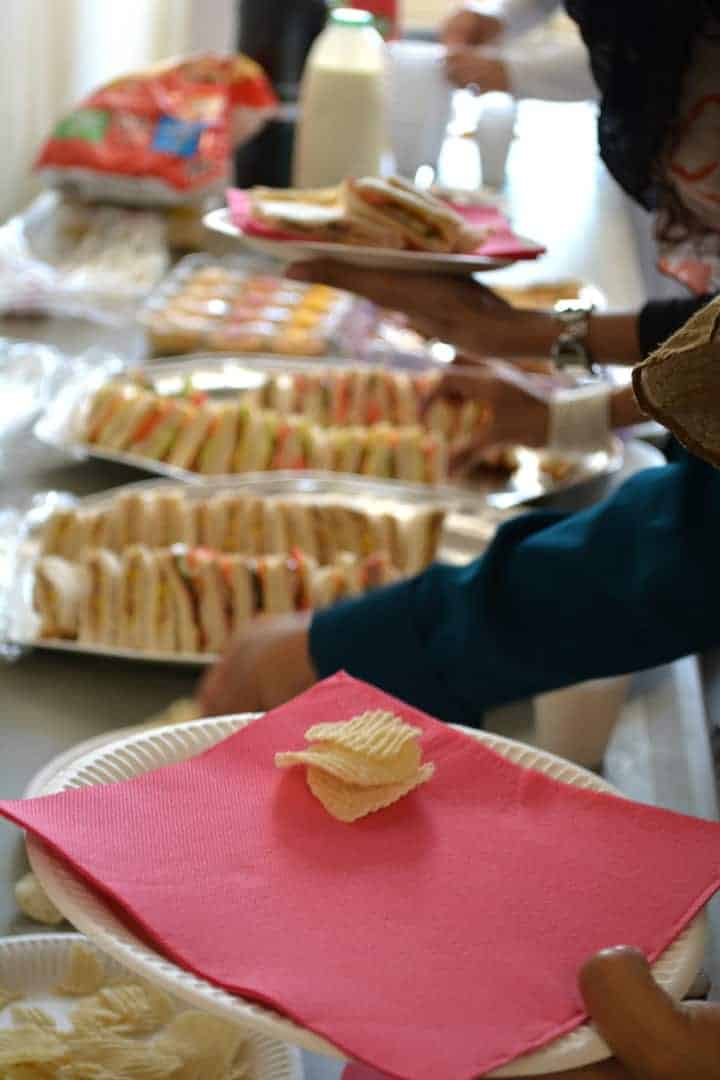
What comes prior to anxiety and depression? Sister Aaliyah Shaikh suggested what happens before the beginning, where potential causes of depression and anxiety take place, in the womb. When we’re young and healthy, what we put inside our bodies is for ourselves, but when there is another human growing inside us – it is different story. Harsh toxins and chemicals, not just in the air but in our food can expose stress to the embryo, we are all aware it is for the health of the child – but have we ever thought about the effects it may have on the mental health? In the last few stages of the pregnancy, where in some cases the baby has to be forced out of the womb can cause anxiety and depression at a very early stage in the life – but more externally, sister Aaliyah pointed out the fact that pregnancy is almost seen like an illness. Where pregnant women are expected to take on the sick role and end up being treated in hospital, where everything from the environment, to the machines to the uniform can set off alarm bells in the mind and cause the body stress and anxiety. We started to question society’s way of dealing with a natural process of life.
Our brain structure can be moulded by the events we experience, thus “children who experience maternal depression early in life may suffer from lasting effects on their brain architecture and persistent disruptions of their stress response systems”. This lead to an intense discussion on medicalisation, and politics of health and treatments, are we really getting what we’re asking for? The discussion sparked new and comprehensive ideas for a health care system that doesn’t involve GP’s having patients on conveyor belts, rather a more positive outlook on health with gratitude in all aspects. There is a lot of pain and suffering in every individual, and we all have degrees of unwellness, but it is our naivety and ignorance that needs to change in order to expose the true causes of suffering. Everything about us depends on our emotional and psychological wellbeing, and it is when we create boxes for our human aspects that it becomes labelled and uncommon to have an illness that nobody can see or touch. We are whole, not a body and mind made up of individual components. With that said, Sister Aaliyah gave us super beneficial pointers on how to stay healthy on a ‘whole’, from our food and nutrition, to sleep, to having regular routines, to moving, to being aware of our environment but most importantly recognising our intentions and realising our purpose. We need to have a peaceful meaning, to have a peaceful mind.
“The prophet (pbuh) never had the “get over it” mentality, Allah never says “get over it”, so why should we? Some people are truly suffering, and it’s wrong of us to tell them to get over it. The Prophet used to say “I am at your service; I am at your service.” We need to offer our unconditional support.”
Aaliyah Shaikh
